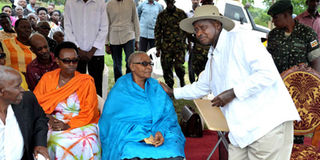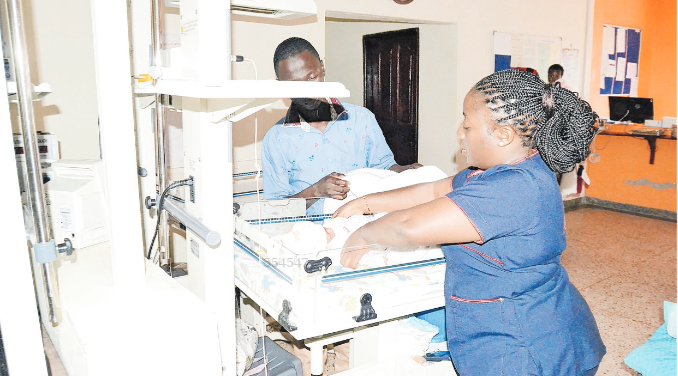Prime
Museveni: 2012 was a difficult year

President Museveni at his home in Rwakitura where he spent his festive holiday. The President in his New Year message, urged the youth to abstain in the fight against HIV. PPU Photo
What you need to know:
New Year prospects. Criticising the media for telling lies and the opposition for sabotaging growth, the President said the focus this year will be on industrialisation.
President Museveni has admitted that 2012, just as the year before, has been difficult for his administration and the country in general, two years he acknowledges have been “full of economic challenges” and missed opportunities.
The President’s admission is detailed in his New Year national message in a statement to the media yesterday. The comments are telling of the upheaval and challenge the NRM leader has faced in the first two years of his fourth elective term in office.
Runaway inflation, high prices of key commodities such as sugar and fuel, a slump in economic growth, corruption and apparent sabotage by “some elements” of the political class, Mr Museveni said, are some of the troubles that had blighted his reign.
The President, however, said “in spite of intensive political and economic sabotage” by the opposition, his administration had been able to regain and maintain success in strategic areas such as electricity and communications (roads and phones).
He said his administration had in the last three years alone, added about 300MW of electricity to the national grid with the commissioning of the Bujagali Hydro Dam and three mini hydro stations at Mpanga, Ishasha and Nyagak, power that is “two times the amount of power the British created for Uganda in the 70 years they were here.”
The President said he was glad to report that the Ugandan economy had recovered after 24 months of upheaval and noted that inflation, which hit an all-time high in 2011 at 30 per cent, now stood at 4.9 per cent, while annual rate of growth “which was 3.4%, will climb back to 5% and, eventually back to 7%.”
Mr Museveni found a moment to shoot at the media, saying it was being propagated by saboteurs keen on shelving the successes of his government while spreading lies.
“The pessimism and misinformation spread by liars is totally false and should be rejected. The radio and TV stations that peddle these lies should be closed if they are not prepared to fulfill their mandate of entertaining, informing truthfully and educating truthfully.”
Mr Museveni said industrialisation, a key engine for economic growth, would continue to form the bedrock of his administration’s agenda in 2013: “On this occasion, however, I must, again, point out where the real remaining weakness is. This is in the delay of industrial projects; Amuru sugar, Lugazi sugar, attempts to decampaign the cement factory in Budaka by elements from Karamoja and the delay of the abattoir project by government officials.”
“Without factories, you cannot create employment…you cannot increase the export earnings, you cannot create the market for the local raw materials. Therefore, in this coming year, the patriots of Uganda will have to confront these two saboteurs the myopic political – administrative group and the corrupt officials who delay our industrialisation vision.”
The President also sounded alarm bells over what he said is “the danger to the youth,” that AIDS is presenting, with prevalence rates reported to be on the rise, a matter he said is the result of “confused” messages in the public domain such as the idea that circumcision limits possibility of contracting the virus.
“The real answer is to abstain and to be faithful to one another or use the condom,” said the President, advocating a return to the ABC strategy.




